The day Scotland and England played the first football international
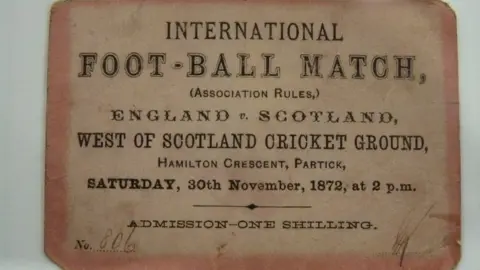 Andy Mitchell
Andy MitchellOn a late autumn day in 1872, a crowd of a few thousand gathered at the West of Scotland Cricket Ground to witness sporting history.
The spectators at Hamilton Crescent in Partick, now part of Glasgow, paid a shilling each to watch the world's first official international football fixture as Scotland took on England 150 years ago.
There had been unofficial meetings in the previous two years but the game on 30 November is accepted to be the first proper match between the two.
Among the Scotland team that day was Alexander Rhind.
The 23-year-old was from Aberdeen but living in Glasgow at the time.
He had recently made the first team at Queen's Park, the pioneering south of Glasgow club who supplied all the players for Scotland.
In his book First Elevens, The Birth of International Football, football historian Andy Mitchell notes: "Rhind was in the right place at the right time, as until that summer he had played for the Queen's Park second eleven."
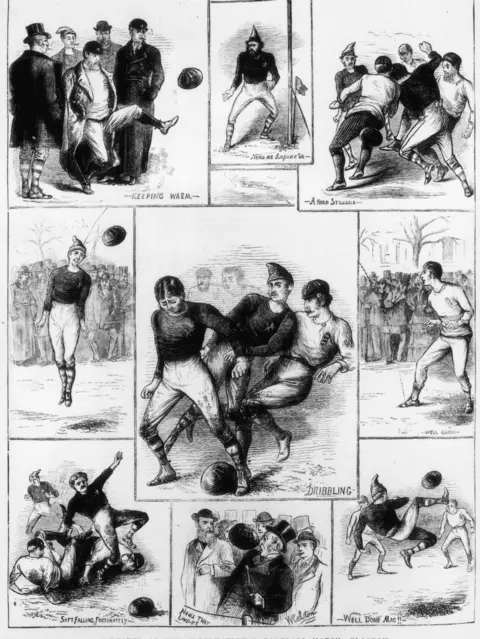 Getty Images
Getty Images
On a pitch that was heavy due to the rain, the smaller Scottish side, playing in the dark blue strip of Queen's Park, pushed their white-jerseyed English counterparts hard.
Reporting on the game, The London Morning Advertiser said: "Soon after commencing, the Scotchmen, headed by Weir, Rhind and Kerr, sent the ball forward into the English territory, the whole team working well together, and the warfare was carried on in the English lines."
A perhaps slightly more biased Glasgow Evening News suggested that "Rhind, who with Mackinnon and R Smith playing well together, brought the tears to Southern Eyes."
In 1872 the league championships in Scotland and England were more than a decade away from being formed and the first FA Cup tournament had just completed in England, with the Scottish competition about to start the following year.

The 1872 teams
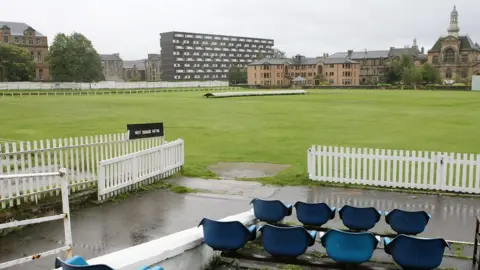 Getty Images
Getty ImagesScotland: Bob Gardner, William Kerr, Joseph Taylor, James Thompson, James Smith, Robert Smith, Robert Leckie, Alexander Rhind, William Muir MacKinnon, Jamie Weir, David Wotherspoon (all Queen's Park)
England: Robert Barker (Hertfordshire Rangers), Ernest Greenhalgh (Notts County), Reginald Welch (Wanderers), Frederick Chappell (Oxford University), William John Maynard (1st Surrey Rifles), John Brockbank (Cambridge University), Charles Clegg (Sheffield Wednesday), Arnold Kirke Smith (Oxford University), Cuthbert Ottaway (Oxford University/Old Etonians), Charles John Chenery (Crystal Palace), Charles John Morice (Barnes)

The first international match ultimately ended 0-0 but was proclaimed a success, despite the lack of goals. International football was up and running - but not for Alexander Rhind.
The inaugural international would be his only cap for Scotland.
According to Mr Mitchell, Alexander Rhind's playing career was brief and after his international debut he faded rapidly from the picture.
He was reported as being too ill to travel to London for the return match against England in March 1873 and left Glasgow in November that year.
Alexander worked in Aberdeen until about 1892 as a commercial traveller in the drapery business.
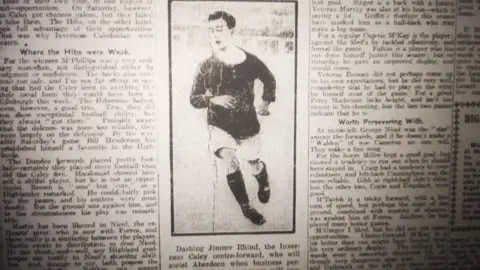 DC Thomson
DC ThomsonHe would later settle in Inverness and was reported by the Inverness Courier in 1912 to be "very well known in the north".
Alexander and his family lived at various houses west of the River Ness, addresses befitting a businessman, and also in close proximity to the Telford Street home of Caledonian Football Club.
Two of Alexander's sons, James and Robert, would find their way to Telford Street as they followed in their father's sporting footsteps.
A 1913 Inverness Courier report on a Scottish Qualifying Cup tie between Caley and Kirkcaldy United noted that: "The Rhinds were the pick of the lot. Their every movement was cool and calculated."
Robert would eventually emulate his father in representing Queen's Park, where it was said he had much of Alexander's respected traits.
Jimmy was good enough to catch the attention of Spurs and their Scottish manager Peter McWilliam, while also attracting an offer from Aberdeen.
The family influence on Inverness football would continue down the 20th Century, with Jimmy eventually taking on the role of Caley secretary and a son-in-law serving as club president.
But the footballing legacy of Alexander and the other pioneers of 1872 stretches way beyond Inverness.
Alexander died in 1923 and is buried at Inverness' Tomnahurich Cemetery.
Campaigners like football historian Iain Campbell Whittle are now calling for the contribution of Alexander, and all the other Scots who played in the game, to be commemorated.
"A simple plaque would be good," he said.
He believes this is the perfect time to mark the legacy of the first internationalists, 150 years since the game in Partick and with the World Cup taking place in Qatar.
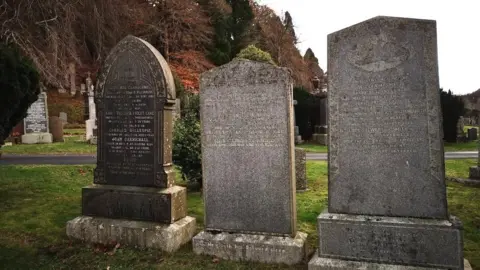
On Wednesday, schoolchildren from nearby Hyndland Primary School were joined by Scotland player Craig Gordon as they staged a recreation of the original match.
The first football international took place 20 months after the first international rugby match between the two countries.
Mr Campbell said: "But for the the game in 1872 with the participation and somewhat myopic but ever hopeful enthusiasm of young men like Alex Rhind and others, the current competition would not be taking place. It would probably be a rugby cup instead.
"The 1872 game and the immediate creation of the Scottish Cup rapidly created in Scotland an importantly working-class passion for football far beyond that in middle-class England."
He said this passion "became a contagion and in the heads and feet of migrant, working Scots, was carried round the the globe and implanted, making it the world game."
